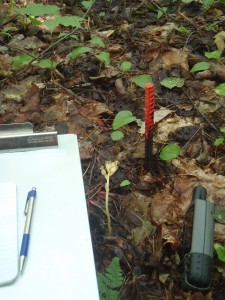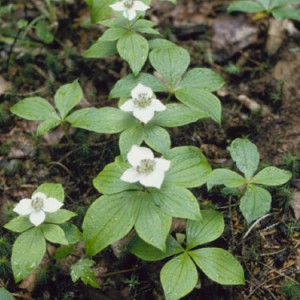Forest Industry Safety Training Alliance (FISTA) trainer Lee Schaumann, assisted by Jim Schmierer conducted a Level 1 Basic Chainsaw Safety training at the Ford Center facility at Alberta, 9 miles south of L’Anse, MI for Michigan Tech students and staff on Saturday, 11/12/11. Participants learned about personal protective equipment, chainsaw maintenance, hazard awareness, safe chainsaw operation, proper notching, bore cutting, and tree felling techniques. The afternoon was spent practicing what was learned in the field in the adjacent Research Forest. Another training is planned for Spring semester 2012.
The Ford Center is home to the School’s Research Forest. Research on sustainable forestry, silviculture and ecological processes has been conducted on the property since 1954. Several on-going, long term studies are being conducted on the Ford Center’s lands. New research projects are continually being initiated. Funding is being actively pursued by School faculty and staff, and students.
A 70-acre jack pine stand on the Michigan Tech Research Forest in the Baraga Plains that includes direct seeding trials from the 1970s was thinned in 2011 to approximately 300 trees per acre (roughly 12’x12′ spacing) to improve vigor, reduce ladder fuels and fuel loads, and improve quality. The yield was 20 tons per acre on average and included mostly chips with a few loads of pulpwood. Samples were taken pre-treatment to develop nutrient profiles of the stand that can be monitored over time. Several Michigan Tech FERM students and a visiting group from Purdue toured the timber harvesting operation.

This fall, students in FW4810 “Integrated Resources Management” (a.k.a. “capstone”) completed a wall-to-wall inventory on the Alberta and Baraga Plains tracts of the Ford Research Forest. Changes to capstone to emphasize landscape-scale assessments allowed for a unique opportunity to synergize teaching and management on our working forest. The data from the inventory will form the foundation of capstone management projects during the fall semester.
Faculty members Robert Froese and Mike Falkowski designed the inventory, and a total of 356 permanently monumented field plot centres were installed by graduate student Tim Gebuhr during August. A high-precision GPS coordinate was collected for each plot center, so the data from the inventory are also available for research applications that demand high-accuracy spatial referencing, such as remote sensing based models of forest inventory. Examples of such applications are the new Forest Biomass Information System for Michigan (http://fbis.mtu.edu).
For more information, contact Dr. Robert Froese, Director of Reserch Forests, at froese@mtu.edu.

The Ford Center is home to the School’s Research Forest. Research on sustainable forestry, silviculture and ecological processes has been conducted on the property since 1954. Several on-going, long term studies are being conducted on the Ford Center’s lands. New research projects are continually being initiated. Funding is being actively pursued by School faculty and staff, and students.